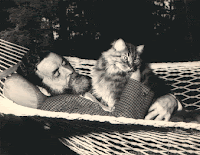
(image: 1929 Model A Ford automobile)
In an earlier post, I undercut nostalgia by referring to a quotation from poet Randall Jarrell: "In the Golden Age, everyone probably went around complaining about how yellow everything looked."
I think I'll take the opposite view this time, partly because almost all creative-writing classes and textbooks warn poets about the dangers of nostalgia--namely, sentimentality; getting cheesy. Sometimes it's good to write a poem that takes a contrarian position, for grins if nothing else.
For Nostalgia
*
In the old days, nostalgia
didn't have a bad reputation.
Now it needs a publicist. Nostalgia's
a sound strategy. It lets you seem
to go to that place and realize how
much the place has changed or how
much it hasn't but is different anyway
because you've changed. Nostalgia's
also inexpensive. Sit on that big rock
you sat on, looking an lichen. Walk
through those summer streets and on
those winter paths. Go off the high dive,
plunge into the perfect perfume of
that other person's hair back then.
Remember that evening, a big bag
full of life and excellent oblique light.
Nostalgia: it's what you've been missing.
Your life and memory belong to you.
Seek a blend of both that suits you, then.
If people chide you about nostalgia,
ask them what they have to offer in
its place. Uh-huh. I thought so. Not much.
*
Copyright 2009 Hans Ostrom

